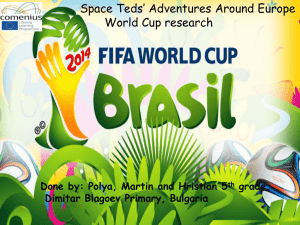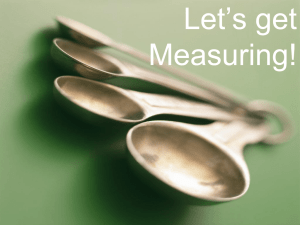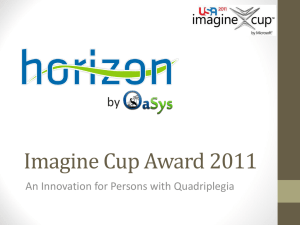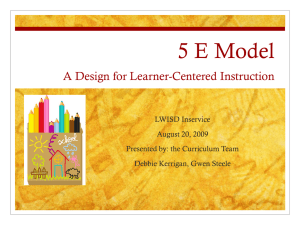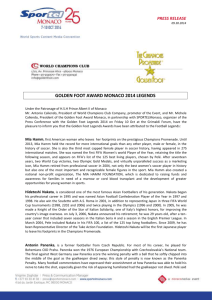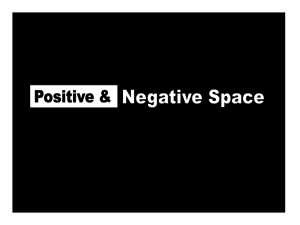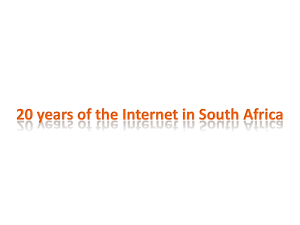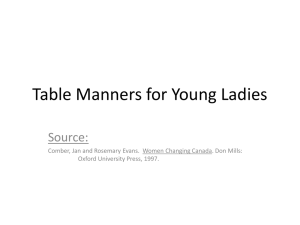Short Theory Analysis: World Cup 2010
advertisement
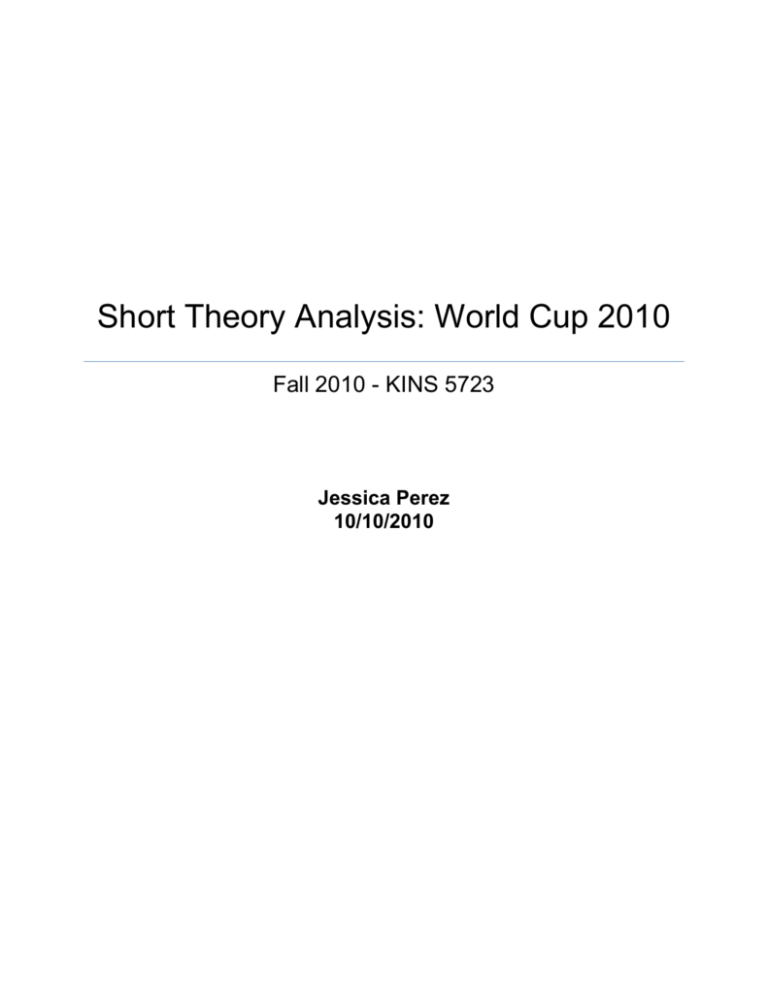
Short Theory Analysis: World Cup 2010 Fall 2010 - KINS 5723 Jessica Perez 10/10/2010 2 The FIFA World Cup is global soccer tournament played every four years. This year’s cup was hosted by the first African country, South Africa. Games were played in 9 different cities and stadiums. The World Cup began on June 11, 2010 and ended on July 11, 2010, lasting 31 days. The 64 games of the cup were played by 32 participating teams from around the world representing all of the continents. The Soccer World Cup is a mega event considering the billions of fans watching the sport and the millions of people that attend the games. (FIFA.com) The FIFA World Cup is a global event and it is an important part of global society. The World Cup can be analyzed using the conflict and critical theories. Through the conflict theory, the World Cup exemplifies how sport is an important economic factor in society. Prior World Cups has shown an enormous impact on the worldwide economy and a healthy economy for the host nation. “Hosting a large international sporting event promises not only the excitement of the event and media exposure for the host nation, but usually also a positive return on the considerable investment associated with hosting this type of event” (Allmers & Maennig, 2010, p. 500). Many countries state their cases to FIFA to host the next world cup because of the positive impact it can have on its country. It was predicted that South Africa would have an economic impact of $2.5 billion and $845.8 in additional government taxes (Allmers & Maennig, 2010, p. 500). The economic impact on South Africa will last for years. “The evidence from previous host countries--such as Argentina--suggests that all the publicity should add at least 10% to tourist arrivals over the next 10 years” (Middleton, 2010). “Global sports events such as the FIFA World Cup fascinate people around the world. Thousands of spectators follow the competition inside the sporting venue, and far more in front of their television” (Nufer, 2009, p. 241). The soccer market during the FIFA World Cup can be a billion dollar market for many companies. In prior events, companies have reaped the benefits of sponsorship with the increase of revenues (Nufer, 2009). “Major sponsors are paying as much as $40-million for the privilege of associating with the event” (Miller, 2010). Coca-Cola, McDonald’s, Adidas, Visa, Sony, and Budweiser were some of the official sponsors of the cup. In one play of the World Cup, Sony received an estimated $1.5 in exposure of their field-board (Mickle, 2010). The sportswear market is one of the most sought out in the World cups. The athletic wear companies feverishly compete for the sponsorship the event and teams. Adidas, Nike, and Puma were the biggest sportswear brands in the cup. “[Adidas] announced that it [expected] to generate at least $1.85 billion in World Cup-related soccer sales” (Burke, 2010). The FIFA World Cup 2010 had major impact on the worldwide economy. The influence that a person, company, or team has by being associated with a World Cup is immeasurable. For example, Didier Drogba is not the best soccer player or has done major good deeds for its country, Ivory Coast, but because of his exposure in soccer he was named one of the 100 most influential people of the world by Time magazine (Miller, 2010). The FIFA World Cup has such an impact on the world that it can influence the global stock market. The outcome of a game has such power of a person’s psychology that it can affect their mood. This mood after a team loss or win can effect economic decisions in the host country and in the teams’ native countries. Edmans, Garcia, and Noli stated that “national stock markets earn a statistically and economically significant negative return on the day after a loss by the national soccer team” (2007, p. 1977). The many economic factors of the FIFA World Cup can be justified using the conflict theory. For many years, the World Cup has been used as platform to expose society’s struggles. The critical theory can be used to analyze the South African World Cup and its struggles in society. South Africa is the African continent’s “richest nation, and the World Cup host, is known for some of the worst levels of violent crime on earth, a global record HIV/AIDS population of 5.7 2 3 million out of 49 million and the kind of poverty that accompanies an unemployment rate of 35.4%”. South Africa had a huge task to complete to change its image and show the world that South Africa is changing. “The chief executive of the South African World Cup 2010 Organizing Committee, Danny Jordaan, states, ‘[The World Cup] is about nationbuilding, it’s about infrastructure improvement, it’s about country branding, it’s about repositioning, it’s about improving the image of our country, and it’s about tourism promotion’ (Allmers & Maennig, 2009, p. 500). “South Africa's World Cup preparations give some hope that soccer might once again transform not just the nation but the world's idea of Africa” (Perry, 2010). The opening ceremony spotlighted all the African teams playing in the World Cup and R. Kelly sang a song of hope for the African Continents. During the World Cup, many of the struggles of the African continent were exposed, like AIDS, rebel violence, poverty, and prostitution. Through its exposure Africa hopes to receive more help from the world. Mandela stated before the World Cup, "The generosity of the human spirit can overcome all adversity. Through compassion and caring, we can create hope" (Perry, 2010). The FIFA organization embraced Mandela’s words and helped many children and people of South Africa and other nations through numerous programs established during the World Cup. Some of the programs are Ambassadors, Football for Health, Football for Hope Festival, 20 centers for 2010, Ticket Fund, and Green Goal Program. The FIFA World Cup was used to change life and society for thousands of disadvantaged people in the world. The official campaign for the World Cup 2010 was the 20 center for 2010. FIFA.com explains: “Its aim is to achieve positive social change through football by building twenty Football for Hope Centers for public health, education and football across Africa. The centers will address local social challenges that young people face in disadvantaged areas by helping to improve education and public health services. ‘20 Centers for 2010’ will promote social development through football long after the final whistle of the 2010 FIFA World Cup™, leaving a tangible social legacy for Africa.” Through the critical theory, sports have the obligation to change society to be more fair, just, and sensitive to diversity and give its citizens a better life. The FIFA World Cup 2010 worked towards the goal of improving life for the disadvantaged through its programs. Through the critical theory, sports should influence society to change. Many times worldwide sporting events serve as political tools. Political struggles and injustices are talked about and reacted to during these athletic global events. Countries have boycotted events in protest to regimes or injustices committed in the host country. The FIFA and its World Cup has also served a political platform. For many years, FIFA refused to allow any communist countries into its organization. For the 2010 World Cup, politics were also part of the event. South Africa suffered through many years of a regime and injustices. The nation has been democratic for less than fifteen years. There is still a lack of national identity because of its poverty, disease, and other negative factors in the country. With the World Cup, South Africa had in mind to “boost to national pride, and the potential to nurture a true South African identity, while intangible benefits, [it will] likely to be significant (Pillay & Bass, 2008, p. 332). The positive aspects on a host country can benefit the country’s morale. The better the society functions, the more successful a country can be. Sporting events reflect its utility as political instruments by allowing host countries to benefit from the entry and recognition in the international arena in exchange access the rest of the world for greater political, economic and social engagement with them (Reyes, 2007, p. 91). 3 4 FIFA’s World Cup is probably one of the most influential sporting events in the world. It can impact world economy, society, and culture. Using the conflict and critical theories to analyze the FIFA World Cup 2010 of South Africa tremendous economic factors were noticed and the impact of the sport of soccer on society’s struggles and politics can be seen. The FIFA World Cup 2010 will forever be remembered as the first cup hosted in the African continent. 4 5 References: Allmers, S., & Maennig, W. (2009). Economic impacts of the FIFA Soccer World Cups in France 1998, Germany 2006, and outlook for South Africa 2010. Eastern Economic Journal, 35(4), 500-519. Burke, M. (2010, June 25). World cup apparel wars. Forbes, Retrieved from http://www.forbes.com/2010/06/25/world-cup-apparel-jerseys-lifestyle-sportssponsors.html. Edmans, A., Garcia, D., & Norli, O. (2007). Sports Sentiment and Stock Returns. Journal of Finance, 62(4), 1967-1998. FIFA, Federation of International Football Association. (2010). Official Site of FIFA. Retrieved from: http://www.fifa.com/worldcup/index.html. Mickle, T. (2010, July 12). Sponsors pleased by early results. Street and Smith's Sports Business Journal, Retrieved from http://www.sportsbusinessjournal.com/article/66189. Middleton, R. (2010, April 7). South Africa scores. Forbes, Retrieved from http://www.forbes.com/2010/04/07/south-africa-soccer-opinions-contributors-richardmiddleton.html. Miller, T. (2010). Soccer Conquers the World. Chronicle of Higher Education, 56(37), B6-B9. Nufer, G. (2009). Sponsoring the FIFA Football World Cup: The good, the bad and the surprising. Journal of Sponsorship, 2(3), 241-249. Perry, A. (2010). Playing the Rebel Game. Time, 175(23), 88-94. Pillay, U., & Bass, O. (2008). Mega-events as a Response to Poverty Reduction: The 2010 FIFA World Cup and its Urban Development Implications. Urban Forum, 19(3), 329-346. Reyes, K. (2007). Olimpiadas y Copa Mundial de Fútbol: ¿Competencias deportivas o instrumentos políticos? (Spanish). CONfines de Relaciones Internacionales y Ciencia Política, 4(6), 83-94. 5
